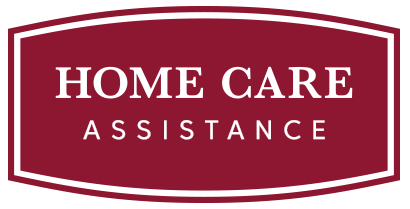Common Non-Cognitive Symptoms of Alzheimer’s

While most people are familiar with the most obvious symptoms of Alzheimer’s, the disease often comes with non-cognitive symptoms, including a few that develop long before memory loss is apparent in seniors who eventually develop the disease. In fact, 90 percent of people with Alzheimer’s are affected by non-cognitive symptoms of the disease. Here are several non-cognitive symptoms of Alzheimer’s to watch for.
Depression
A major study completed recently found that 30 percent of people who eventually developed Alzheimer’s had symptoms of depression. Researchers are still unsure if depression without signs of cognitive impairment raises the risk of developing Alzheimer’s, but depression can cause or worsen memory loss in seniors who have some type of impairment.
Mood & Personality Changes
It’s common for people with Alzheimer’s to experience changes in mood or personality. Seniors with Alzheimer’s may become very suspicious, scared, or anxious, or they may get upset in places where they were once comfortable.
Caring for loved ones with Alzheimer’s can be overwhelming for family caregivers, and compassionate professional caregivers can provide much-needed support. If your senior loved one has been diagnosed with a serious condition and needs help with tasks like meal prep, transportation, bathing, and grooming, reach out to Home Care Assistance, a leading provider of senior care Dallas, TX, families can trust. We also offer comprehensive care for seniors with dementia, Alzheimer’s, and Parkinson’s.
Loss of Motivation
Apathy, social withdrawal, and a loss of interest in hobbies often accompany Alzheimer’s, although these signs are often mistaken for depression. Around 40 percent of people with Alzheimer’s also have depression, and loss of motivation that occurs in the early stages of the disease may be due to depression.
Seniors’ lack of motivation and reluctance to interact can make it difficult for family caregivers to know what their loved ones need at any given time. Caring for a senior loved one can be challenging for families who don’t have expertise or professional training in home care, but this challenge doesn’t have to be faced alone. Family caregivers can turn to Dallas Home Care Assistance for the help they need. We provide high-quality live-in and respite care as well as comprehensive Alzheimer’s, dementia, stroke, and Parkinson’s care.
Aggression
Physical and verbal aggression are common non-cognitive symptoms of late-stage Alzheimer’s. Screaming and threats are common, although some seniors may become physically aggressive and attempt to assault visitors, family members, and caregivers.
Inappropriate Behavior
Mid- and late-stage Alzheimer’s disease often brings with it one of the most difficult symptoms to manage: impulsive or inappropriate behavior. Seniors with Alzheimer’s may blurt out rude comments to people, make inappropriate sexual advances, or even shoplift from stores.
Clingy Behavior
Seniors with Alzheimer’s have a tendency to become clingy with certain caregivers and follow them around. This behavior, called “shadowing,” usually occurs when the person with Alzheimer’s is most confused and anxious, and it’s often toward the end of a day.
If your elderly loved one is living with Alzheimer’s and needs help managing the symptoms, turn to Home Care Assistance, a leading provider of Alzheimer’s care. Dallas seniors can rely on our revolutionary Cognitive Therapeutics Method (CTM), an activities-based program that promotes cognitive health and delays the onset of Alzheimer’s disease. CTM also encourages seniors to engage with others in an enjoyable way and helps them build new routines to look forward to. Whether your parent needs hourly or live-in care, give us a call at (214) 363-3400 today.

